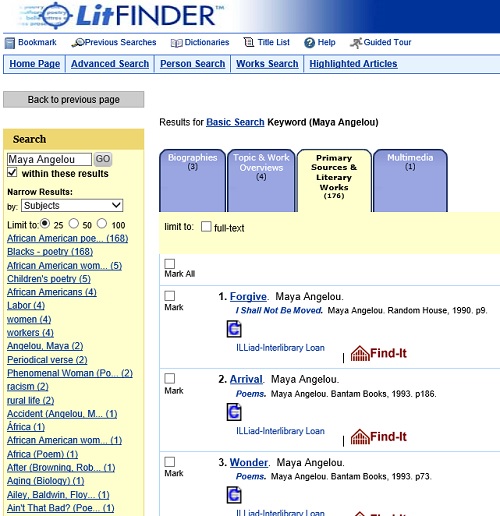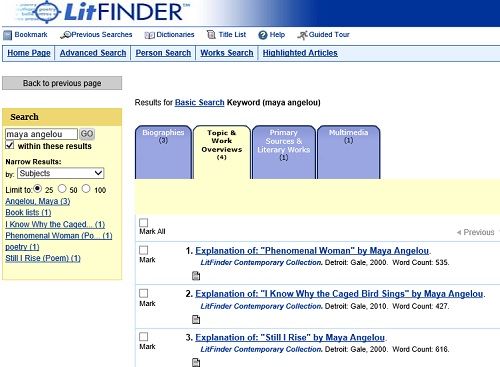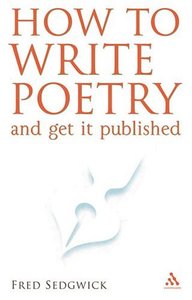Last week, we looked briefly at a little of what the library had to offer for the aspiring poet or poetry scholar. This week, let’s look at these sources in a little more depth. You might be approaching poetry in a lot of different ways. Maybe you just like poetry, and want to read some casually. Maybe you’re a student who needs to find poetry of a certain type, author, or genre to study. Maybe you need to find criticism about a specific poet or poem. Or maybe you want to write poetry of your own. The library can help with all these needs.
First, how to find poetry. Chances are, if you’ve taken a poetry class, you’ve used an anthology collecting poetry of the genre you’re interested in. We have loads of anthologies both print and electronic format, covering major genres like American, British, African American, Feminist, Postmodern, or Contemporary poetry, to more offbeat subjects like Surrealism, Young Adult, Media, Christian, Social Class, War, or even poetry about Flowers.
Databases like Litfinder and 20th Century American Poetry connect you with hundreds of thousands of poems, whether you’re interested in old greats like William Wordsworth or relative newcomers like Gary Snyder. Search by poet or poem:
Other similar databases include American Poetry (1600-1900), African-American Poetry (1750-1900), Latin American Women Writers, Black Women Writers, English Poetry (600-1900), Scottish Women Poets of the Romantic Period, and Latino Literature: Poetry, Drama, and Fiction. Many of these same databases can be used to find criticism about the poems or poets, as well. In a database like Litfinder, you only have to choose the ‘Topic and Work Overviews’ tab:
But general literature databases are great for searching for criticism, as well. MLA International Bibliography and ProQuest Language and Literature are two of the best and biggest, but another great one is JSTOR, a database that has journal articles dating back more than a century. Normally, such old articles would be less useful, but not here. Since currency is nowhere near as important in the study of poetry as it is in some other disciplines, a critique written fifty years ago can be every bit as relevant today. All of our databases dealing with the study of poetry and literature can be found here. One word of caution, though – the more famous the poet or poem, the more likely it is that you can find critical work on it. If your poem is relatively recent or by an obscure author, there generally is not much to be found. Keep this in mind if you have a class where you are assigned to find criticism on a poem of your own choosing.
And, of course, we have plenty of books on the subject of poetry. In addition to ones like those mentioned last week, we have many interesting or fun titles like Pass the poetry, please by Lee Bennett Hopkins, Songs of Ourselves: The Uses of Poetry in America by Joan Rubin, or Poetry therapy; the use of poetry in the treatment of emotional disorders edited by Jack J. Leedy.
And of course, there is much we can offer the aspiring poet. A poetry handbook by Mary Oliver, Drafting and Assessing Poetry: A Guide for Teachers by Sue Dymoke, or Teaching Poetry Writing: A Five-Canon Approach by Tom Hunley are more titles focused on improving in the craft, and How to write poetry and get it published by Fred Sedgwick, Librarian’s Guide to Micropublishing: Helping Patrons and Communities Use Free and Low-Cost Publishing Tools to Tell Their Stories by Walt Crawford, or Book Publishing Encyclopedia: Tips and Resources for Authors and Publishers by Dan Poynter can help you when it comes time to put what you’ve done in print for others to read.
If you have any questions, we’d be glad to help. Ask us at iueref@iue.edu! And if you’re feeling creative, stop in the library anytime in April and add a poem to our Poetry tree!




